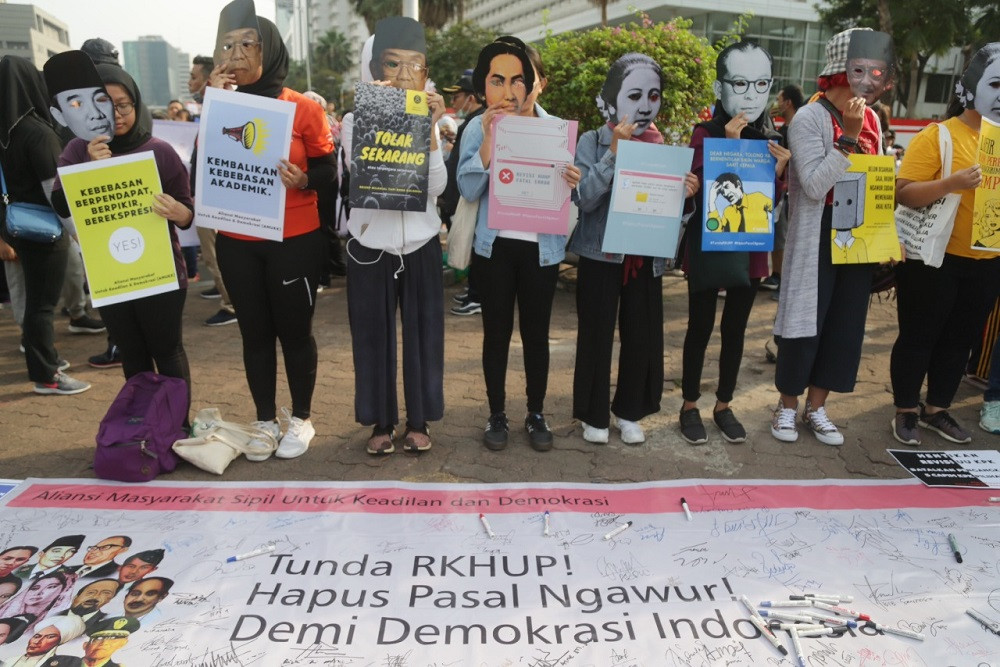Popular Reads
Top Results
Can't find what you're looking for?
View all search resultsPopular Reads
Top Results
Can't find what you're looking for?
View all search resultsNo more secretive lawmaking
In a democracy, the process of lawmaking should be done in transparency, especially for a piece of legislation as critical as the penal code.
Change text size
Gift Premium Articles
to Anyone
A
fter years of protracted deliberation, lawmakers say they are ready to pass a revision to the 1946 Criminal Code (KUHP) by the end of next month. The passage of the bill, if all goes according to plan, would be a breakthrough for the country, which still relies on a “colonial” piece of legislation for its criminal justice system.
However, with only a few weeks before the planned passage, civil society groups claim they have not been able to access the latest draft bill, sparking allegations that lawmakers are trying to keep the important bill from public scrutiny. Last week, they finally sent a letter to President Joko "Jokowi" Widodo and members of the House of Representatives to demand that the draft bill be made publicly accessible for perusal.
We strongly urge the President to meet their demands. This is not only because the 2011 Drafting of Laws and Regulations Law requires it, but also because in a democracy, the process of lawmaking should be done in transparency, especially for a piece of legislation as critical as the penal code, which regulates how we live our lives. It is essential that the law acknowledges local values and conforms to global democratic norms.
It is hard to say whether the current draft is good or bad enough. It is said that the government and lawmakers are seeking to soften some controversial provisions in the bill in response to public outcry. The government, which initiated the revision, claimed to have reformulated or removed 14 problematic topics in the bill after conducting what it claimed to be a series of public consultations last year.
One of the 14 problematic provisions is the article on insulting the President, which was declared unconstitutional by the Constitutional Court in 2006 but was somehow reinstated in the draft bill. A watered-down version of the article reportedly no longer requires the president to press charges against those accused of defaming him. In the earlier formulation, the police are authorized to prosecute critics of the president regardless of whether the head of state has filed a formal complaint.
Such a compromise falls short of the demands made by civil society groups. The article, they say, could still be used to silence critics and create a chilling effect on free speech. That is a solid argument that the government needs to consider.
We are thus deeply concerned that the government, represented by the Law and Human Rights Ministry, and lawmakers have reportedly approved the proposed changes to the bill and planned to pass it in a plenary session in July.
The government should learn its lesson when it chose to ignore public aspirations when passing the Job Creation Law in 2020. It was cited as one of the reasons the law was declared “conditionally unconstitutional” by the Constitutional Court. Moreover, student groups say they are ready to take to the streets to protest the passage of the bill if the government refuses to involve meaningful public participation in its drafting.
We stand by the public voice: Lawmaking shouldn’t be this elitist and secretive.











